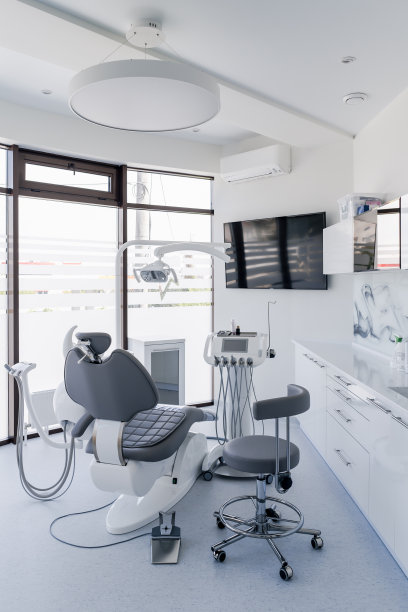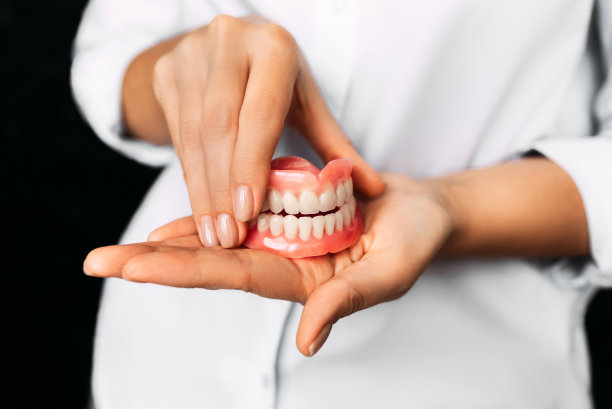Summary: Before undergoing dental filling procedures, taking the right precautions is crucial for maintaining optimal oral health. This article outlines four essential aspects to consider: understanding the procedure and types of fillings, consulting with your dentist, preparing both physically and mentally, and following post-procedure care. Understanding these points will not only enhance your experience but also ensure lasting results and prevent complications. By being well-informed and prepared, patients can significantly improve their oral health journey.
1. Understand the Procedure and Types of Fillings

Before any dental filling procedure, it is paramount to understand what the treatment entails. Dental fillings are used to restore the function and integrity of a tooth that has been damaged due to decay or trauma. The procedure typically involves removing the decayed material, cleaning the affected area, and then filling it with a suitable material.
There are various types of filling materials available, including amalgam, composite resin, porcelain, and glass ionomer. Each material has its own advantages and disadvantages, depending on factors like the location of the cavity, the extent of decay, and your personal preferences. Discussing these options with your dentist can help you make an informed decision about the best option for your specific circumstances.
Being aware of the details of the procedure can alleviate anxiety and set clear expectations, contributing positively to your overall dental experience. Understanding potential side effects and recovery times is also beneficial in preparing you for the journey ahead.
2. Consult with Your Dentist Thoroughly
A thorough consultation with your dentist before the dental filling procedure is essential. This meeting is an opportunity to discuss your dental history, any previous treatments, and your overall dental health. Open communication will help your dentist evaluate your situation more effectively and customize the treatment plan to suit your needs.
It is also important to inform your dentist about any allergies, existing medical conditions, or medications you are taking. This information is critical in avoiding any adverse reactions during the procedure, especially if sedatives or specific numbing agents will be used.
Consider preparing a list of questions or concerns you may have before the appointment. Engaging actively in this process can enhance your understanding and reassurance. Dont hesitate to discuss any fears or apprehensions; your dentist can provide comfort and solutions to make you feel more at ease.
3. Physically and Mentally Prepare for the Procedure
Preparation goes beyond mere understanding of the procedure; it involves getting physically and mentally ready for the dental filling. Start by scheduling the appointment at a time when you can relax afterward, allowing your body to recover from the dental work without the stress of daily commitments.
You may also want to arrange for someone to accompany you to the appointment. Having a supportive friend or family member can provide comfort and distraction during the procedure, which can be particularly helpful if youre feeling anxious.
Additionally, mentally preparing involves practicing relaxation techniques, such as deep breathing or visualization. These strategies can significantly reduce anxiety and help you maintain a calm demeanor throughout the process. The better prepared you are, the more likely you are to have a smooth and successful experience.
4. Follow Post-Procedure Care Instructions
After undergoing a dental filling, it is crucial to adhere strictly to post-procedure care guidelines provided by your dentist. Initially, you may experience some discomfort, sensitivity, or swelling in the treated area. Following care instructions can help manage these symptoms effectively.
Your dentist may recommend avoiding hard, sticky, or hot foods for a specified period. This helps prevent compromising the filling before it fully sets. Maintaining proper oral hygiene by brushing and flossing carefully around the filling site is also essential to prevent future decay.
Monitoring the treated area for any signs of complications, such as extreme pain or swelling, is vital. If any concerns arise, don’t hesitate to reach out to your dentist for further guidance. Regular dental check-ups also play a crucial role in maintaining optimal oral health after any dental procedure.
Summary:
In conclusion, taking essential precautions before undergoing dental filling procedures can significantly enhance your oral health journey. By understanding the procedure and types of fillings, consulting thoroughly with your dentist, and preparing both physically and mentally, you set the stage for a successful outcome. Additionally, following post-care guidelines is vital for maintaining the benefits of the filling and avoiding future issues.
This article is compiled by Vickong Dental and the content is for reference only.
Vickong Dental
Vickong Dental is a large medical group established in Hong Kong in 2008 by professors from well-known medical universities in Guangdong and Hong Kong, as well as medical doctors from key national '985' universities (including Master's supervisors and senior professors). The chain of branches brings together expert dentists with PhDs and Master's degrees from Hong Kong and Mainland China, committed to providing high-quality dental treatment.
"Vickong Dental Practices the University Motto of 'Healing and Serving Society,' with a Stable Operation for Sixteen Years. It Has Been honored with Hong Kong Enterprise Leaders's Choice,' and is a Global Trusted Implant Center for the Nobel Implant System. Recommended by Hong Kong Metro Broadcast and Guangdong Television, it Serves Customers from Over Thirty Countries and Regions, Gaining the Trust and Favor of Citizens from the Guangdong-Hong Kong-Macau Greater Bay Area and Surrounding Cities.

Thousands of customers' unanimous praise
The most recognized and highly recommended dental service by customers in the Guangdong-Hong Kong-Macau Greater Bay Area
We Ensure You Receive Detailed Care and Attention Here
Hong Kong standards, Shenzhen prices, Your Trusted English-speaking dentists

Vickong Dental Medical-Grade Instrument Disinfection Process
Vickong Dental Medical-Grade Instrument Disinfection Process

Vickong Dental Chain: A Warm and Comfortable Environment for Treatment






Appointment Hours

Q&A
Why choose Vickong Dental?
Vickong Dental practices the university motto 「Medicine to Benefit Society」, with each branch bringing together highly qualified dentists with doctoral and master’s degrees from Hong Kong and the Mainland, and has maintained seventeen years of steady operation。Recipient of 「2024 Hong Kong Enterprise Leaders Brand」, 「2025 Hong Kong Enterprise Leaders Brand」, a Nobel Biocare Global Trusted Implant Center, and a brand recommended by Metro Radio Hong Kong and Guangdong TV。
To date, we have served customers from more than thirty countries and regions,earning exceptionally high word-of-mouth recognition and trusted recommendations from residents across the Guangdong-Hong Kong-Macao Greater Bay Area and surrounding cities
We have eight major branches in Zhuhai、Shenzhen,and a consultation and service assurance center in Hong Kong,so you can book a free consultation at any time for any questions,which is very reassuring.
If I do not accept the quotation after the CT scan, will I be charged??
No! As long as the actual treatment has not started, you will not be charged any fees.
Will there be any additional charges during the treatment process?
No, there won’t be any additional charges. Before treatment begins, we will clearly explain the treatment plan and its corresponding fees. Only after the patient agrees and signs the consent form will we proceed with the dental service.
Can I pay in Hong Kong dollars?
Yes. Vickong Dental accepts payment in Hong Kong dollars. The amount will be converted based on the exchange rate of the day, and the applicable rate will be clearly communicated to you in advance.
Can I reschedule my appointment at any time?
Yes. Please contact us via **WeChat** or **WhatsApp** as early as possible, providing your original appointment time and details, along with your preferred new date and time slot for rescheduling.













